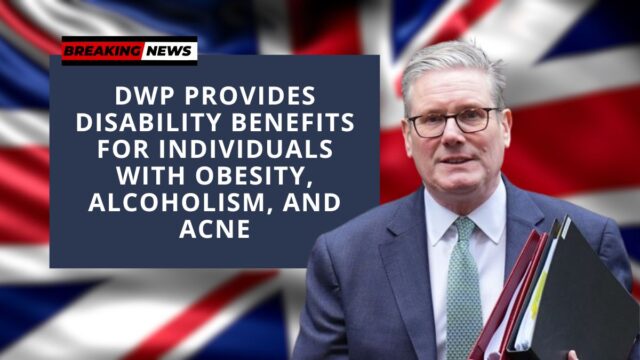A growing number of individuals are now receiving Personal Independence Payment (PIP) benefits in the UK for a wide range of physical and mental health conditions—including obesity, alcohol and drug dependency, and even acne, according to new findings from the TaxPayers’ Alliance.
Under the PIP scheme, eligible claimants can receive up to £187 per week to help manage the extra costs associated with long-term health conditions or disabilities. This support also extends to mobility benefits, allowing some recipients to access a Motability vehicle through government-backed schemes.
Surge in Claims for Alcohol and Drug Misuse
Data from April 2025 reveals that 5,817 people were receiving enhanced PIP for alcohol misuse, compared to just 1,443 in 2019. Similarly, 1,635 people were claiming for drug misuse, a sharp rise from 277 six years ago. The TaxPayers’ Alliance points to these increases as part of a larger trend in PIP claims tied to mental and behavioral health.
Uncommon and Lesser-Known Conditions Supported by PIP
The data also highlights several rare or less commonly discussed conditions being supported under the PIP framework:
- 13 claimants received payments for factitious disorders, where individuals intentionally fake or cause illness.
- 5 individuals were approved for claims related to acne.
- 6 people received assistance for writer’s cramp.
- 857 claimed enhanced PIP for Tourette’s syndrome.
- 31 were supported due to food intolerance.
Additional claimants included those suffering from obsessive-compulsive disorder (2,783) and sleep apnoea (1,211).
Mobility Benefits and the Motability Scheme
For those receiving the enhanced mobility component of PIP—£77.05 per week—there’s also the option to lease a new vehicle through the Motability scheme. Popular models among recipients include the Nissan Juke and Peugeot 2008.
Sharp Rise in Mental Health-Related Claims
The most significant increase in claims has been noted in mental health-related conditions:
- Autism claims jumped from 26,256 in 2019 to 114,211 in 2025.
- Anxiety and depression claims matched that number, rising from 23,647 to 114,211.
- ADHD claims grew from 4,233 to 37,339 over the same period.
- Claims for obesity now stand at 2,346.
Regional Distribution and Trends
A new online dashboard launched by the TaxPayers’ Alliance allows the public to view PIP and other welfare claims by postcode. According to their data, nearly 1 in 10 individuals in England and Wales are now PIP recipients.
- Wales reported an average of 147.7 claimants per 1,000 residents, with Blaenau Gwent reaching a high of 211.
- The East of England recorded the largest percentage increase, with claims rising 118% since 2019.
Public and Political Commentary
John O’Connell, CEO of the TaxPayers’ Alliance, voiced skepticism about the steep rise in certain condition-related claims. He emphasized the need for political accountability, stating:
“While England is a sicker country than before the pandemic, the size of the increases for many of these conditions surely cannot be believed by even the most gullible of MPs.”
He added that the UK needs bold leadership to reform the system so that taxpayer funds are used appropriately, while ensuring that genuine claimants continue to receive support.
The Department for Work and Pensions (DWP), however, maintains that all PIP claims are individually assessed, with awards based on personal needs rather than the diagnosis alone.
Conclusion
The dramatic rise in PIP claims across the UK—especially for conditions like alcoholism, autism, ADHD, and mental health disorders—has sparked debate about the integrity and sustainability of the current welfare system. While the DWP insists on rigorous assessments, campaigners argue for a more balanced approach that protects both taxpayer interests and the needs of vulnerable individuals.
Frequently Asked Questions
1. What is the maximum amount one can receive under PIP?
Eligible individuals can receive up to £187 per week, depending on the severity of their condition and whether they qualify for both daily living and mobility components.
2. Can PIP benefits be used to get a car?
Yes. If you qualify for the enhanced rate of mobility (£77.05/week), you can lease a new car through the Motability scheme.
3. Is acne really eligible for PIP benefits?
Yes. Although rare, acne can be eligible for PIP if it significantly impacts a person’s ability to carry out daily tasks or maintain their well-being.
4. How does the DWP assess PIP claims?
The Department for Work and Pensions evaluates PIP applications based on the impact of the condition, not just the medical diagnosis. Each case is assessed individually.
5. Where can I see PIP claim statistics for my region?
The TaxPayers’ Alliance has introduced a dashboard that allows users to view PIP and welfare claims by postcode across England and Wales.

